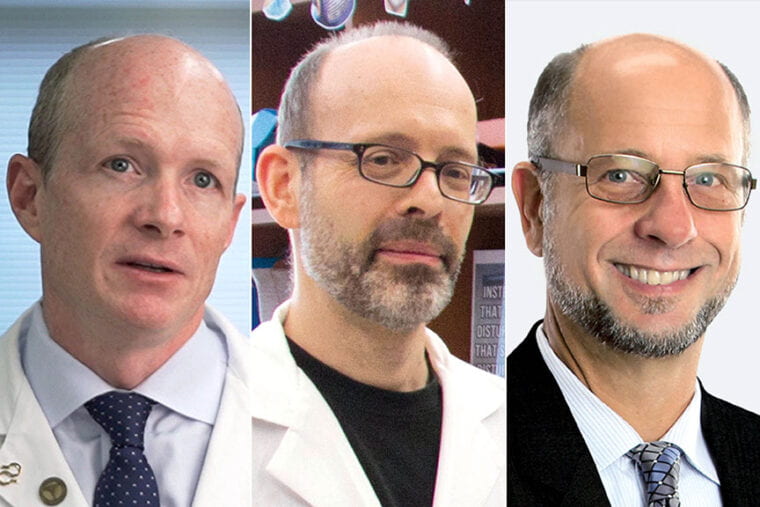Neurologist Randall J. Bateman, MD, virologist and immunologist Michael S. Diamond, MD, PhD, and microbiologist Scott Hultgren — all faculty members at Washington University School of Medicine in St. Louis — have been named fellows of the National Academy of Inventors, the highest professional distinction accorded solely to academic inventors.
They are among 175 new fellows elected this year in recognition of their innovation in creating and facilitating outstanding inventions that have made a tangible impact on quality of life, economic development and the welfare of society. They will be honored at a ceremony during the academy’s annual meeting in June in Tampa, Fla.
Randall J. Bateman
Bateman, the Charles F. and Joanne Knight Distinguished Professor of Neurology, is being recognized for his pioneering work in diagnostics and clinical treatment for Alzheimer’s disease. His research into techniques to detect molecular signs of Alzheimer’s has led to the first blood test approved under the Clinical Laboratory Improvement Amendments (CLIA), to aid in the diagnosis of Alzheimer’s. The aim of the CLIA program, under the Centers for Medicare & Medicaid Services, is to ensure quality laboratory testing in people. The Alzheimer’s test, made by the startup company C2N Diagnostics, became available to patients and physicians in October.
Bateman co-founded C2N in 2007 with David Holtzman, MD, the Andrew B. and Gretchen P. Jones Professor and head of the Department of Neurology, to provide a technology the two had developed called SILK, or stable isotope labeling kinetics. The technology measures the breakdown and synthesis rates of neurological proteins important in Alzheimer’s disease, such as amyloid beta, tau and others, data that can be crucial for evaluating the effectiveness of potential Alzheimer’s drugs. Multiple large pharma companies have partnered with C2N to use SILK to help assess drugs in clinical development.
